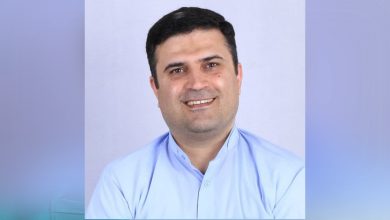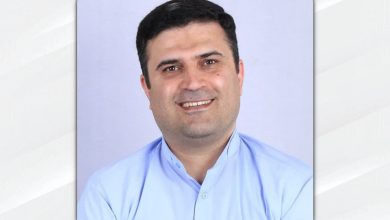Part Four: Soleimani and Religious Authority – A Special Bond with Najaf, Qom, and Tehran (Section Eight)

 Political Section
Political Section
Practical Adherence to the Scholars’ Guidance on the Battlefield
Haj Qasem did not merely visit religious scholars; he implemented their recommendations and guidance in practice on the battlefield. According to the Shafaqna news website (ar.shafaqna.com), during the 2015 operation to liberate Tikrit — when concerns about the safety of civilians were raised — Haj Qasem ordered the operation to be planned in a way that would avoid harming non-combatants. In a phone call with one of the maraji‘ representatives in Najaf he emphasized, “We are the trustees of people’s lives, and by the blessing of the maraji‘ fatwas we preserve this trust.” This approach reflected his practical commitment to Islamic jurisprudence and ethics.
During the operation in Al-Bukamal (ISIS’s last stronghold in Syria in 2017), Haj Qasem, citing one of the commanders present in the operation (in an interview with Press TV), recalled Ayatollah Makarem Shirazi’s advice that “saving the lives of civilians is more important than any military victory.” He conveyed this principle as an operational rule to his forces and, even amid clashes, instructed his units to establish safe corridors for civilians to exit. Western media reports, including The Guardian, also noted Soleimani’s role in reducing civilian casualties in anti-ISIS operations.
Connection with the Ahl al-Bayt school and viewing the scholars as teachers
Haj Qasem considered himself a disciple of the Ahl al-Bayt school and regarded the scholars as its representatives. In one of his speeches to resistance forces (published on the official channel of the Haj Qasem School Foundation on Telegram), he said: “On the battlefield we have taken our lessons from the scholars and maraji‘. They taught us how to wage jihad in the way of God and how to preserve human dignity.” This perspective was also apparent in his interactions with Sunni scholars.
According to Al-Alam network (alalam.ir), during cooperation with Kurdish and Sunni forces in Iraq, Haj Qasem met with Sunni scholars from the Mosul area and listened respectfully to their views; some of these scholars later described him as “a just and faithful man.”
Mutual influence: the scholars’ view of Haj Qasem
The relationship between Haj Qasem and the scholars was reciprocal. Many maraji‘ and scholars saw him not merely as a military commander but as a practical exemplar of commitment to religious values. Ayatollah Javadi Amoli, in a meeting with Haj Qasem (reported by Jamaran), called him “a devoted soldier for Islam” and said, “You have shown that one can follow the Ahl al-Bayt school even on the battlefield.” Ayatollah Nouri Hamedani, in a statement after Soleimani’s martyrdom (published by IRNA), referred to him as “a son of the school of jurisprudence and jihad,” emphasizing that his behaviour toward the scholars exemplified Islamic etiquette.
Foreign sources also noted this relationship. BBC Arabic (bbc.com/arabic) reported that some regional analysts believed Soleimani’s respect for the scholars and his adherence to religious rulings were among the reasons for his spiritual influence across Shia and even Sunni communities. That respect granted him a moral and religious legitimacy beyond his military power.
Practical examples of conduct in specific situations
In a lesser-known account found in the book Haj Qasem and the Scholars (by Mohammad Ali Pourmousavi), during a 2017 visit to Mashhad, after visiting the shrine of Imam Reza (peace be upon him), Haj Qasem met Ayatollah Vaez Tabasi. He listened attentively to Tabasi’s recommendations on preserving Islamic unity and asked him to pray for the success of the resistance forces. This meeting, occurring amid heavy operations in Syria, demonstrates his priority to maintain spiritual ties with the scholars even during crises.
In another example, according to an interview with a close associate of Haj Qasem on Al-Manar (almanar.com.lb), before the operation to liberate Aleppo he phoned a leading scholar in Qom and requested prayers for the combatants, saying: “We fight with weapons, but our victory depends on the prayers of the scholars and the people.” This reveals his deep conviction in the spiritual role of the scholars in military success.
An implicit conclusion in his conduct
Haj Qasem’s conduct toward the religious scholars stemmed from his deep belief in the connection between jihad and jurisprudence. Through his behaviour he demonstrated that a military commander could, alongside strength and authority, be a humble student before the scholars and uphold ethical and legal principles on the battlefield. This characteristic made him a symbol of harmony between faith, practice, and religious decorum — an aspect of his personality noted in Iranian, Arab and even foreign sources.
Haj Qasem Soleimani: a guardian of justice and interfaith coexistence
Soleimani’s conduct toward other religions and his role in protecting churches, liberating the Yazidis in Iraq, and rescuing the nuns of Maaloula in Syria reveal his deep humanity and steadfast faith in justice and peaceful coexistence. As commander of the Quds Force of the Islamic Revolutionary Guard Corps, he was a symbol of resistance to oppression and terrorism and consistently worked to defend the oppressed irrespective of their religion or ethnicity.
Drawing on genuine Islamic values that promote the defense of humanity, he adhered to these principles. The foregoing detailed his heroic roles in these areas, based on reliable sources and well-documented accounts.







